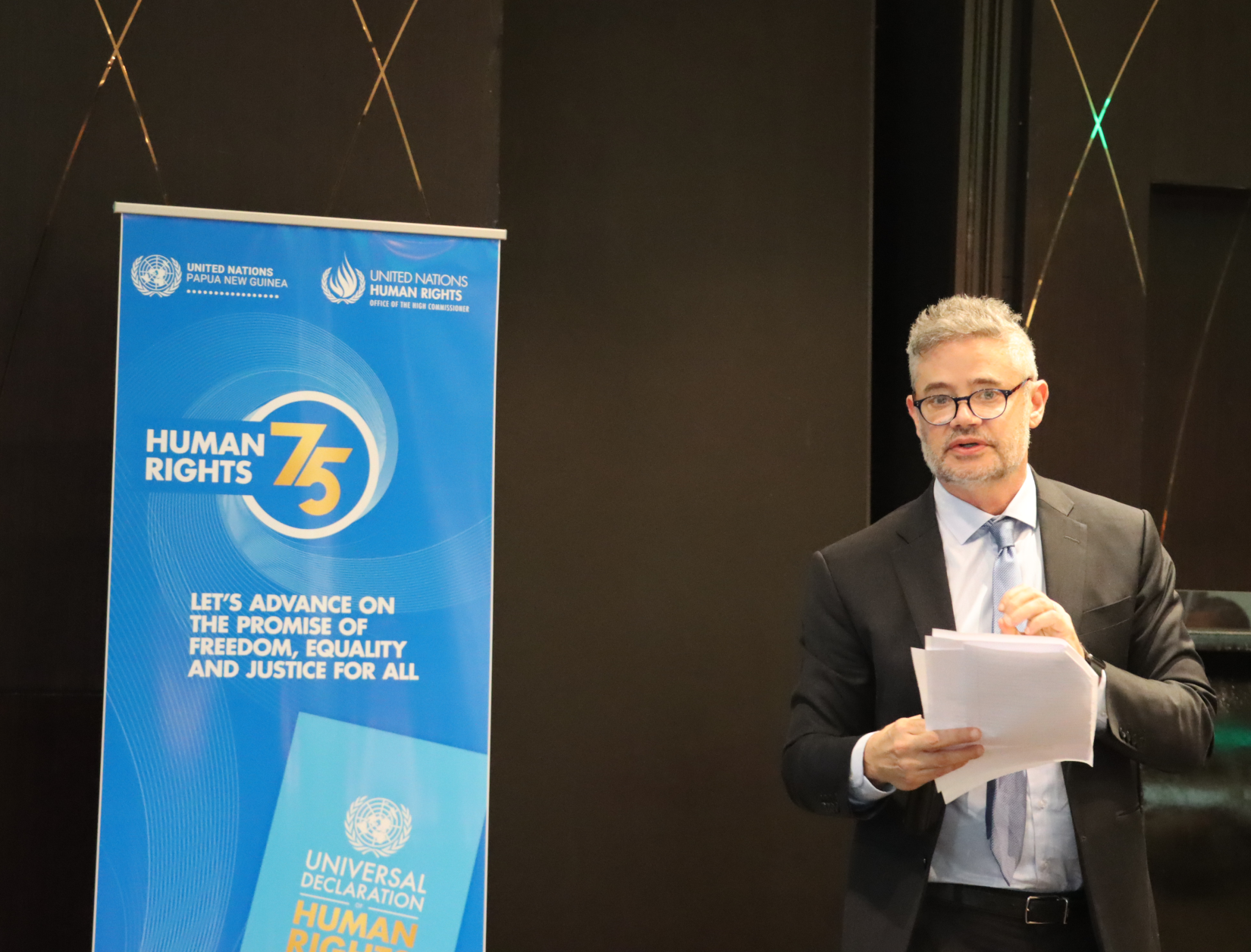UN RESIDENT COORDINATOR'S MESSAGE FOR WORLD PRESS FREEDOM DAY
03 May 2023
When transparency is nurtured; justice succeeds.

A unified celebration of World Press Freedom Day was today hosted jointly by the United Nations and media companies in Papua New Guinea.
Acknowledging World Press Freedom Day is particularly significant in 2023 because it is 30 years since the UN’s General Assembly proclaimed the public’s inalienable right to freedom of expression.
Around the world, media freedoms are being eroded. Journalists are frequently intimidated. World Press Freedom Day is also a time to reflect and pay tribute to the 430 journalists globally who were silenced by death or imprisonment in 2022.
This year also coincides with the 75th Anniversary of the UN’s Universal Declaration of Human Rights, to be observed on 10th December.
The theme for World Press Freedom Day, “Shaping the Future with Rights”, reaffirms freedom of expression as a driver for the progress of humanity.
The UN’s Resident Coordinator in Papua New Guinea, Mr. Richard Howard, said a free media is one of the cornerstones of democracy.
“When transparency is nurtured, justice succeeds. Journalists have a responsibility to deliver the facts needed for the public to make informed decisions on the type of society they want for their country, Mr. Howard said.
Mr. Howard said a journalist’s focus is to publicise the truth by reporting without fear or favour in an open environment.
He said, journalists who embrace a Code of Ethics are more likely to discharge their obligations of serving the nation as honest brokers for the people.

“Media outlets are to be commended for the extraordinary volume of news they publish over the course of a year. It is even more important in the digital age because people must be able to trust the media to counter misinformation often dressed up as fact on social media platforms,” said Mr. Howard.
There is a need for journalists to receive standardised training and the ongoing challenge of low wages and poor working conditions has still not been addressed. Such issues have resulted in many A-Grade journalists leaving the industry for communications positions in other sectors.



